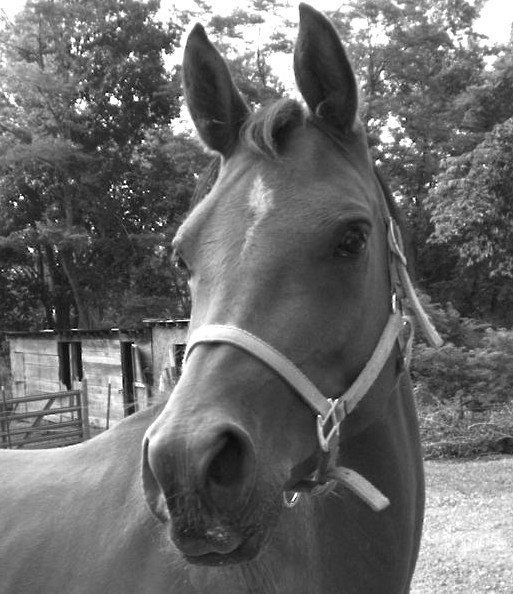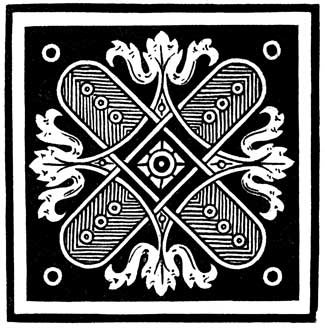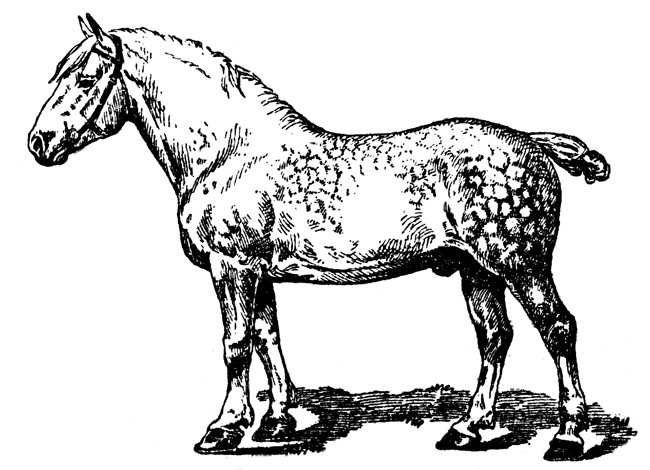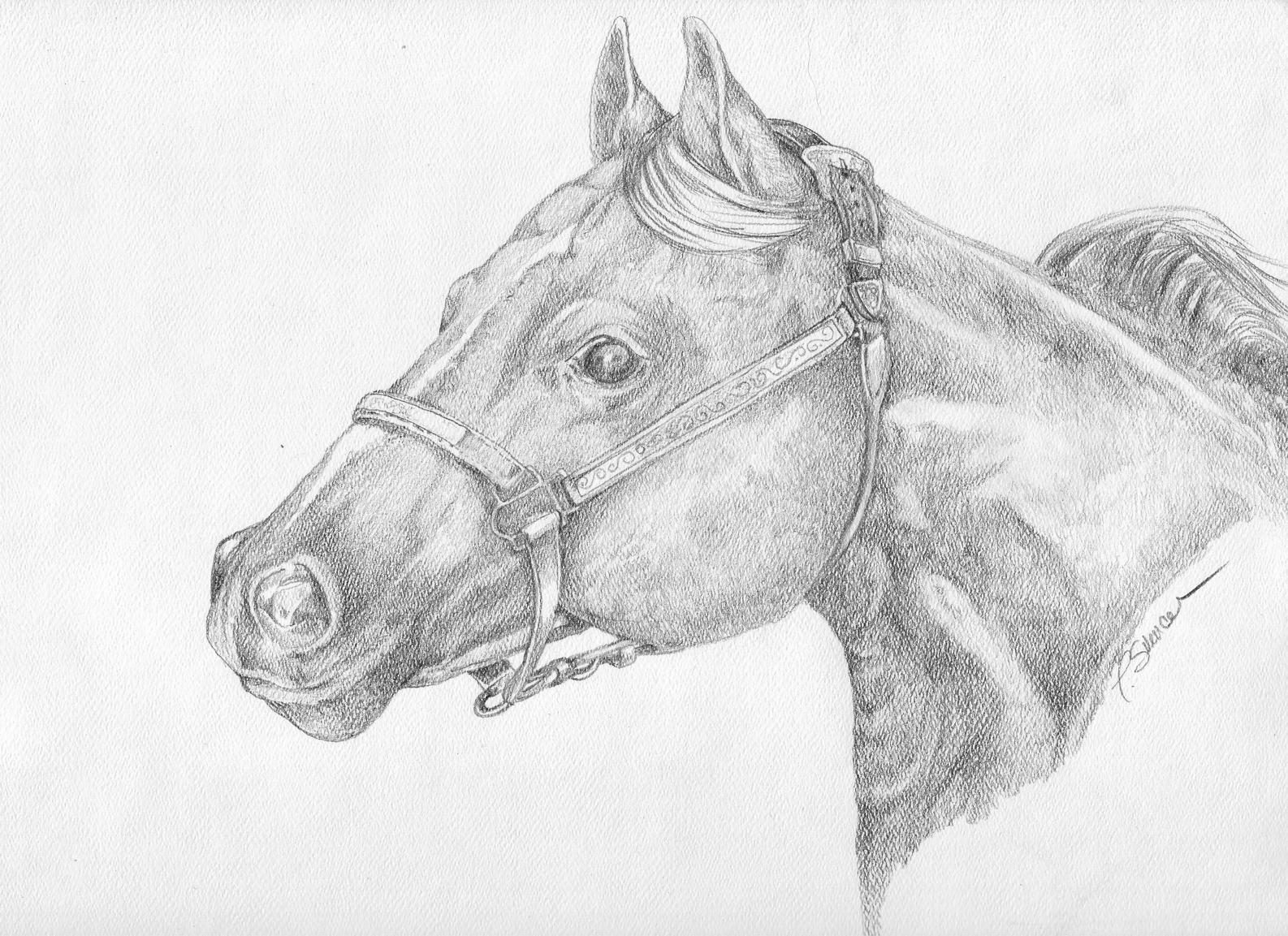H.E.R.D
Human Equine Relationship Development
Written by Tamara Svencer
H.E.R.D -2-H.E.R.D
Human Equine Relationship Development
Copyright © 2010 Tamara Svencer
ISBN: 978-0-557-62854-4
All rights reserved. No part of this publication can be reproduced, stored in a retrieval system, or transmitted in any form or by any means – electronic, mechanical, photocopy, recording, or any other – except for brief quotations in printed reviews, without the prior permission of the author.
Human Equine Relationship Development

H.E.R.D -3-
“This book is dedicated to my children, Elliott,
Laurel, Jacob, & Richie who have taught me how
to believe in my own dreams and remind me
daily that dreams really do come true.”
Human Equine Relationship Development

H.E.R.D -4-Thank you too Miss Bella, may you be forever free.
Human Equine Relationship Development
H.E.R.D -5-Table of Contents
INTRODUCTION.........................................................7
1 Quiet Confidence......................................16
2 Looking for a Leader...............................36
3 Touch Me Teach Me Trust ......................74
4 Lead Me Through My Fears.....................86
5 Up, Down, Back, Forward, Side to Side......124
6 Ground Control.......................................136
7 Ride With Me Not Against Me...............157
8 Buying The Right Horse.........................173
9 The Promise............................................196
10 Aggression............................................208
11 Spoiled Rotten.......................................232
12 What Every Horse Should Know..........241
In Closing..................................................................272
Human Equine Relationship Development

H.E.R.D -6-PREFACE
“Why would I ever want a horse to be like
me? I would rather aspire to be more like the
horse – honest, strong, faithful, intelligent beyond
reason, and dependable beyond belief.”
Tamara Svencer
Human Equine Relationship Development

H.E.R.D -7-INTRODUCTION
Dealing with horses makes you a better
person. I thank God for my horses as they have
developed my character in so many ways. They
have taught me patience. They have taught me the
ability to just be still and know. They have given
to me the strength inside and out to deal with a lot
of my own personal issues. They have
undoubtedly taught me all forms of the word
“balance” and for that I am eternally grateful.
Being with horses is not all about getting
on their backs and riding, it is so much more than
that. Some of the best times I have had with
horses has been from the ground just bonding.
There is a natural attraction to the horses
freedom, it's beauty, its undeniable grace that
draws us towards it. It is hard to put into words
exactly what the attraction to this animal is. It
Human Equine Relationship Development
H.E.R.D -8-has a certain quality that lets us embrace all that
we wish we were.
My goal is to educate others through my
own experiences. In the horse world experience is
something to be coveted. The more experience
you get the better of a horse-person you will be.
The thing that you should keep in mind is that all
experience is important, not just time spent in the
saddle. Sometimes the time we spend grooming
or just sitting watching our horses accomplishes
more than an hour long ride. The true key to
success here is bonding with our animal. A
natural bond will form that will strengthen every
aspect of our relationships with our horses.
This book is for all horse people. I wish
that all newcomers could get a copy of this book
before getting into the task of horse ownership
and training. I think even advanced
horsemen/horsewomen will benefit from
understanding that the relationship one has with
their horse must be built, like anything else, upon
a good foundation. A solid foundation will effect
how we act and react to all of the ups and downs
that come along the way.
Human Equine Relationship Development
H.E.R.D -9-To me training is not an activity solely
participated in by the horse. Training is a two way
street, you must both be learning about each other
for this relationship to progress. The reward of
communicating with a horse in a natural way they
understand will result in a horse that will surpass
your expectations, as well as move you along in
your own abilities. You are holding a conversation
with the horse not lecturing him.
Horses are not only excellent students,
they are superior teachers. My horse has taught
me about patience, discipline, strength, and
endurance. She has taught me to never give up
and to push through the pain, heat, snow and rain
not only physically but also emotionally. She has
taught me what "heart" means and for this I will be ever grateful.
I ask only that you approach these pages
with an open mind. My approach is one that takes
control of the horse from the inside out. If you can
get her to give you her trust and her heart there will be nothing she will not do for you.
Many people approach horses with a
preconceived notion of what will happen. Some
Human Equine Relationship Development
H.E.R.D -10-have spent time riding horses from riding stables,
or watched a lot of western movies. Horses from
riding schools are often so "desensitized" to
dealing with different people and situations that
they are docile and stable mounts.
This is great opportunity for those that like
to ride a weekend or two out of a month. It will
help build up a shaky riders confidence. But
please remember most horses are not like horses
from riding stables. This is a really important
thing to consider when purchasing your own
horse. Most horses come with a few "quirks".
Some are spooky, some are fearful, some bite,
some kick, some run off, some rare up, some don't
move at all, some even like to go in reverse.
If you have a mental picture of buying a
horse, jumping on its back and riding off into the
sunset at full gallop your first time out,
understand that this is probably more fantasy
than fact.
Before you go any farther, just drop all of
your preconceived notions of what a horse can
and cannot do. Forget everything you have been
told and approach this animal with a totally fresh
Human Equine Relationship Development
H.E.R.D -11-mindset. Open your mind to a whole new world of
possibilities that you can achieve with a loving,
well balanced relationship with what I believe to
be the most wonderful of all of God's creatures.
I am not writing this book to be a “how to”
training manual. There have been so many of
those written. You can learn the technique of
training a horse to lead, tie, and accept a rider
from one of those, as there are many great books
available on that subject matter.
This book is more of a foundation builder
for your entire equine relationship. It will teach
you the “why” factors that motivate and control a
horse from birth. Horse sense and human sense
are completely different. I want to bridge the gap
and give you a better way to communicate with
your horse to build a stronger more humane
relationship.
Horses do not speak the English language.
Think about that for a moment. Your horse does
not sit around thinking in words like you do. They
don't have a spoken language. Therefore their
thoughts are not in words. That is a really hard
concept to take a hold of mentally for a human
Human Equine Relationship Development
H.E.R.D -12-because that is the way we have always done
things.
We think, and we think in words. We
convey what we are thinking about by producing a
sound that other humans can understand to mean
a certain object or concept. Imagine that you
didn't have a word for the object we call tree or
the feeling we call love. How would you describe
them with out words? Through actions, and that
is how the horse speaks. He does not speak in
English, Spanish or Dutch but he speaks in action
and energy.
You have to start thinking and acting more
like the horse for him/her to start to understand
you. They understand action and energy. They
don't understand a word that you are saying. They
only understand the tone in which it is spoken
and the energy with which it is delivered. A sharp
“quit it” conveys disapproval. A gentle “good girl”
conveys acceptance. They only understand the
energy and actions associated with our words.
You will learn you can speak to a horse without
every actually speaking a spoken word.
For this reason it is silly to have lengthy, in
Human Equine Relationship Development
H.E.R.D -13-depth conversations with your horse as if they are
participating in a conversation with you. It may
make you feel better but the horse only hears
something like “blah, blah blah blah, blah, blah
blah blah”. Learning to focus on the energy and
emotions we are displaying will allow you to
remove the words from the equation. You can
have silent, very productive conversations with
your horse that he will understand completely.
If you sat for 12 hours a day observing your
horses you would find that the horses are silent
for about 11 hours and 45 minutes of that time.
You may occasionally hear one horse call out to
another in moments where they are on the move
and have lost visual sight of each other but other
than that, its pretty quiet. They are in fact though
constantly speaking to each other through body
language.
This is the sole way a horse will
communicate most of his needs and desires. He
talks with his body and the energy he is displaying
to other horses around him.
Any relationship that we enter into must
possess strong communication skills to be
Human Equine Relationship Development
H.E.R.D -14-successful. You see that marriages often fail after
this breaks down because communication is so
valuable in conveying our wants, needs and
desires. It can not be one sided, that is just
unreasonable and unbalanced.
A horse is a very honest and reasonable
animal. His communication is open and
straightforward. He isn't sneaky and his feelings
are not hidden. If you take a little bit of time and
energy to understand how he speaks you will
bypass all of the headaches of trying to teach him
how to think and speak like a human.
Trust me this is the much easier and more
rewarding way of doing things. It is also the most
natural and easily accepted method by the horse.
It builds a working relationship that is filled with
success and satisfaction.
Human Equine Relationship Development

H.E.R.D -15-IMPORTANT NOTE:
Working with any animal can be a
dangerous activity, always make sure you practice
safe horse handling. Wear the appropriate
protective gear as well as always let someone else
know where you will be at and what you will be
doing. Due to the size and strength of a
horse, injuries can be sustained easily.
Always use your best judgment in working with
horses, and if you feel uncomfortable with an
activity or a behavior issue consult a professional
horse trainer to aid you.
Human Equine Relationship Development

H.E.R.D -16-Chapter 1
Quiet Confidence
There is one tool that any person needs to
have in order to successfully work with horses. It
is a tool that is of more importance than any other
tool that you may possess. You cannot buy this
tool at a feed store or order it online. It is a tool
that will make all other tools of the trade more
useful. And without it all other tools useless. That
tool is confidence. A sort of fearlessness in the
face of an animal that could very easily hurt you at
best, and kill you at worst.
Human Equine Relationship Development
H.E.R.D -17-A horse by nature does not really
communicate its wishes through verbal
commands. They do on occasion let you know
what they are about to do by whinnying or
neighing, but for the most part they speak to each
other through body language. I want to address
the fact that when you step into their world your
body language will do the speaking for you. You
need to learn what they are saying and be able to
anticipate what they are about to do. The more
fluent you become in speaking their language the
easier and safer your horse experiences will
become.
A horse is a prey animal. It survives
through picking up on the slightest signals around
it. It is also a great reader of things unseen. They
have a sixth sense of sorts, filtering in information
from between the lines, as well as directly. When
you venture into their space they are picking up
on so much more than what you are doing. They
can sense what you are feeling. They have a
sponge like ability to absorb what you are feeling
especially anxiety. It is very important to
remember that when you are feeling nervous or
Human Equine Relationship Development
H.E.R.D -18-anxious so is your horse. This signals to your
horse that they need to be ready to flee because
danger is around.
Unfortunately they do not understand that
to a person who lacks confidence they are often
the danger that is around. So whenever you are
going to interact with your horse or any horses for
that matter, you need to really be aware of the
feelings you are projecting onto them. You need a
quiet confidence, a sense of relaxed energy, that
will allow them to remain calm in your presence.
And over time you will develop this quiet
confidence more and more.
What do I mean by quiet confidence? Well
quiet confidence comes from a sense that you
truly know that everything around you is alright
and that you are in control of the situation. It
speaks of a true leadership state of mind. That is
what a horse is looking for, a true leader. If you
want to have a natural leadership role with your
horse, this is the key, quiet confidence. When you
see people yelling and screaming at their horses
teetering on the edge of abusing them into doing
what they want, they are reacting out of fear or
Human Equine Relationship Development
H.E.R.D -19-anger. Fear and anger do not make for good
leadership qualities. Horses understand that
when you are out of control you can not control
them.
Before you can have control of your horse,
you must be able to control yourself. The horse
knows this and you should learn it before going
any further. Focus on understanding that with a
horse fear is a sign of weakness or danger. Weak
people do not lead horses, weak people get pushed
around by horses. When a horse senses fear it also
can become nervous and ready to flee for safety.
When a horse does not respond to something you
want it to do and it makes you angry you need to
take a mental timeout. Horses do not lead
through anger. Horses lead in one way and one
way only - quiet confidence.
Confidence is not something you can just
get either. It is learned, built upon, and grows. It
takes time to get the confidence you need to be a
true leader in all situations.
The whole idea of natural horsemanship
has taken off to a great extent in recent years. It
has helped put some of the archaic and outdated
Human Equine Relationship Development
H.E.R.D -20-training techniques to rest and for this I am
thankful. Just like any new idea that comes along,
it has been over marketed and milked for every
single penny it can produce. People have slapped
the “natural horsemanship” label on everything
from books to gear in order to sell it more quickly.
I am not a natural horsewoman. I am just a
woman who seeks to have a very balanced and
productive relationship with my horse. In fact if I
wanted to be a natural horsewoman I don't think I
would ever place my rump in a saddle. My horses
would be left running free on open ranges and I
would never subject them to the training, fences,
trailers, and shows I so often do. Everything
humans do for the most part with and too their
horses is unnatural. Calling it natural doesn't
make it that way.
Whatever I can do to learn more, I will.
And whenever I can help teach someone else
something that will aid them in developing a
deeper relationship with their horse, I will.
I hope by the end of this book you will have
learned something and moved forward in the
understanding that a horse is not just a beast.
Human Equine Relationship Development
H.E.R.D -21-They are very intelligent, very perceptive, very
able creatures that I feel every human can call
their partner.
The relationship you have with your horse
is much like the relationship you share with
people in your lives. To have a successful
relationship of any kind it must be a working
relationship. It must continually be growing and
as it grows it will strengthen itself naturally. It
must also be a balanced relationship. The start to
having a balanced relationship with your horse is
to understand that a horse is a horse and not a human being. That is the beginning to having a
fulfilling experience that makes both parties
happy.
Human beings have this inner need to
humanize animals and other "things" that inhabit our lives. We assume that animals think and react
like people through spoken words. I have heard
many people referring to their horses as if the
horse was just another human. I want you to
understand that a horse speaks a different
language, feels different emotions, and is very non
human.
Human Equine Relationship Development
H.E.R.D -22-I think the world may be a better place if
people were a little more like horses and a little
less like people. And that is the key here, be more
like a horse instead of forcing the horse to be
more like a human.
The biggest mistake most people make
with their horses is to "love" them too much. It isn't hard to love a horse. It is really easy in fact to
develop a very deep emotional attachment to it. I
want you to love your horse. I want you to love
your horse so much that you make unselfish
decisions when it comes to their development.
Spoiling a horse in the name of love only
benefits the owners own need to feel loved by the
horse. But horses do not "love" people in the
sense than humans love one another. Yes they can
become very attached to their human
companions. They become bonded in a way that
resembles human love. But it is not the same.
When you truly love your horse you will
understand that you must make every effort
possible to bring forth a well mannered and
obedient animal.
Chances are that you will not own your
Human Equine Relationship Development
H.E.R.D -23-horse for the entirety of its life. Things change so
rapidly in our lifetimes. People lose jobs, they
need to relocate, get new jobs, have children,
become physically unable to care for their horses.
Many things can happen that will result in you
needing to find a new home for your horse. A
horse that is well mannered, submissive, and
obedient will go on to have a long and well-lived
life.
It is horses that have been spoiled in the
name of love that develop the multitude of
undesirable behaviors that will dwindle their
chances at fin









